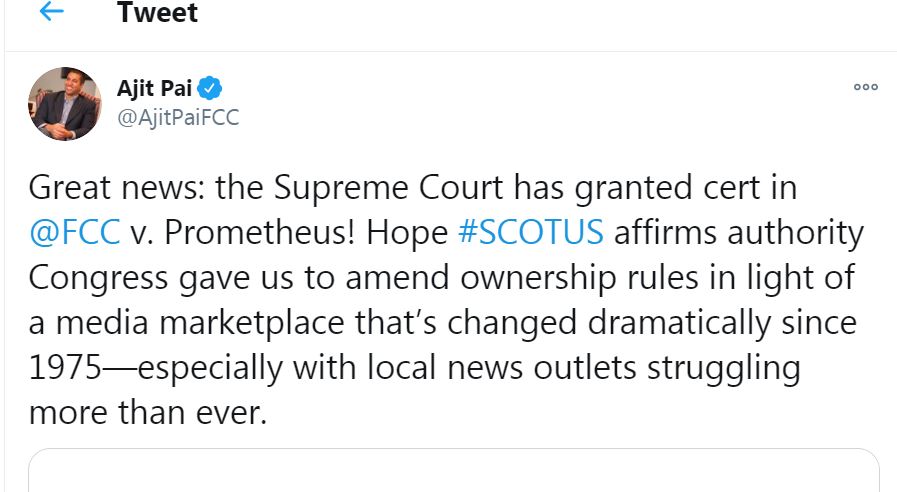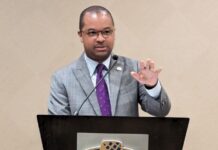
On Friday The U.S. Supreme Court announced it would take up the long-running legal dispute over whether the FCC can loosen U.S. media ownership rules. A lower court has prevented the FCC’s efforts to revise the rules since 2003.
For years the FCC has said the current rules do not reflect the current media marketplace.
Broadcast Attorney Frank Montero tells Radio Ink it’s time for some clarity. “We’ve seen a developing practice of forum-shopping where the Third Circuit has become the go-to court for those challenging the FCC’s media ownership rules and other circuits perhaps being more deferential to the FCC’s orders. This presents a problem and uncertainty. When there are “circuit splits”, the Supreme Court’s role is to give clarity and some consistency. We saw this in the Aereo appeal. People need to know what law applies. I’m hopeful that the Supreme Court will bring clarity and some consistency.”
NAB CEO Gordon Smith: “NAB looks forward to presenting our case before the Supreme Court this term. For almost two decades, the Third Circuit Court of Appeals has blocked common-sense changes to outdated broadcast ownership regulations to the detriment of local journalism. The time has come to allow the FCC to modernize its rules.”
Conniosseur Media CEO Jeff Warshaw: “This increases the chances for broadcasters to be liberated from the rusty shackles of antiquated rules and could ultimately help insure the long-term survival of the radio industry.”
Beasley Media Group CEO Caroline Beasley: “Limits on media ownership hamstring broadcasters ability to compete with the unregulated internet giants that serve the same viewers, listeners and advertisers in our local markets,” said Beasley Media Group Chief Executive Officer Caroline Beasley. “We are hopeful that the Supreme Court will agree that modest relaxation of rules adopted decades ago is long overdue.”
Broadcast Attorney David Oxenford says the decision to hear the case means that there will be additional briefs filed and an oral argument with a decision likely by the end of the Court’s term at the end of June or in early July. “A decision to reverse the Third Circuit would likely reinstate the FCC’s 2017 ownership decision which, among other things, abolished the newspaper-broadcast and radio-television cross-ownership rules. It would also likely make easier FCC consideration of further ownership rule changes, like those proposed for the local radio ownership restrictions, as the Third Circuit decision requires a seemingly impossible detailed analysis (beyond what the FCC has already done) of the historical impact of past ownership changes on minorities and other new entrants into broadcast ownership. Of course, any ownership changes are subject to review by any post-election FCC so there are always political considerations that may dictate what any Court decision would ultimately mean.”
Here’s how FCC Chairman Ajit Pai reacted to the decision on Twitter.








Eventually, towards the end of June or early July, when the Court’s term concludes, a decision will be made after further papers are submitted and an oral argument is held.